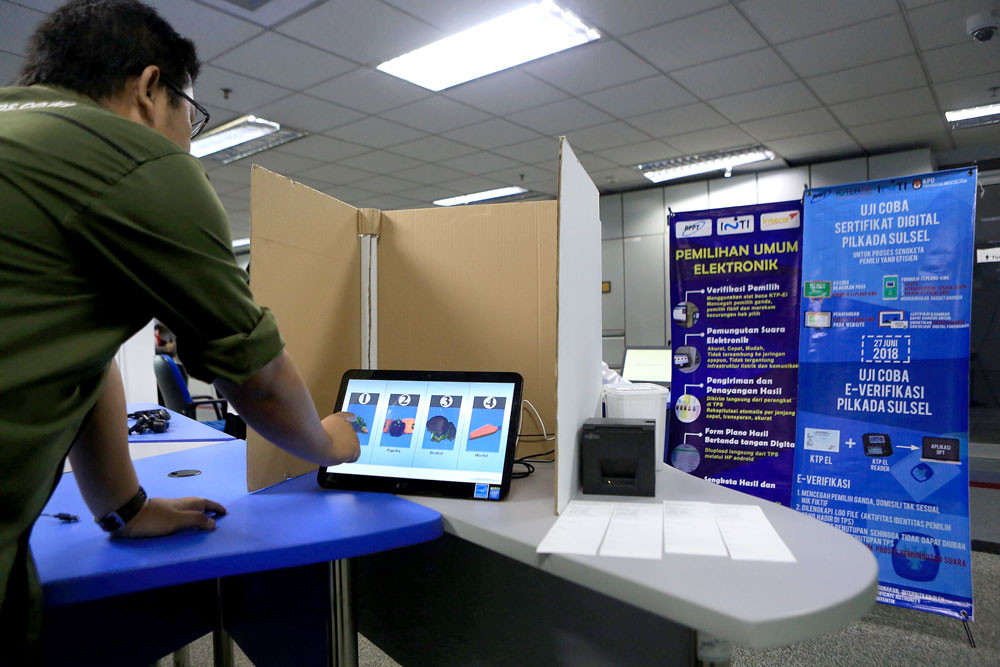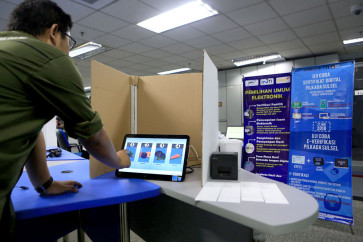Popular Reads
Top Results
Can't find what you're looking for?
View all search resultsPopular Reads
Top Results
Can't find what you're looking for?
View all search resultsFrom ballot boxes to bits and bytes, e-voting is Indonesia's next democratic milestone
Digital systems can uphold the foundational principles of democratic voting, confidentiality, security and certainty, more reliably than manual systems.
Change text size
Gift Premium Articles
to Anyone
I
n recent years, Indonesia has witnessed an accelerating shift toward digital governance. Among the most ambitious transformations currently under discussion is the integration of electronic voting (e-voting) into the country’s electoral framework.
The rationale behind the plan is simple yet compelling: Indonesia, the world's third-largest democracy, requires an electoral mechanism that is not only secure and transparent but also efficient and inclusive. E-voting offers precisely that.
The 2024 presidential and legislative elections cost the state approximately Rp 76.6 trillion (US$5 billion), making it one of the five most expensive democratic exercises globally. With over 800,000 polling stations and the deployment of 7.5 million poll workers, the sheer scale underscores the logistical and financial burden of manual elections.
According to state tech firm PT INTI (2023), e-voting can reduce both logistical complexity and costs by up to 40 percent across successive election cycles while delivering real-time vote tallying with near-zero human error.
With the Home Ministry set to roll out e-voting across thousands of villages during the upcoming village head elections (Pilkades), and lawmakers suggesting it could be adopted for the 2029 elections, digital democracy may no longer be a distant prospect.
Pilot implementations have already shown great promise. Results from e-voting-based Pilkades have been delivered within minutes after polls closed, eliminating procedural lags common with manual tabulation. The system also avoids issues such as damaged ballots, voter duplication and delayed counts.
Each digital ballot is embedded with a time-stamped, encrypted signature, effectively eliminating double voting or ballot spoilage. While infrastructure investment is required upfront, the long-term reduction in operational costs makes e-voting a financially sound democratic innovation.



















